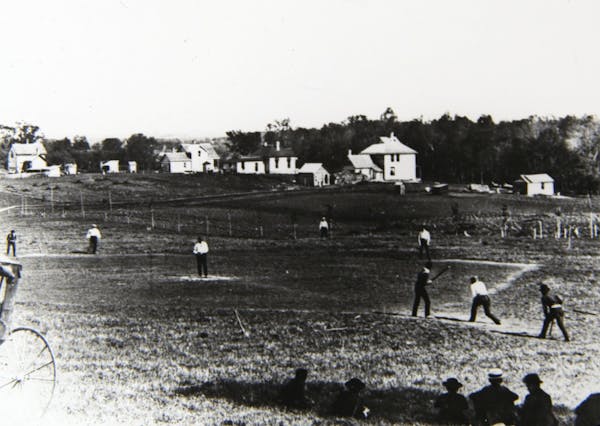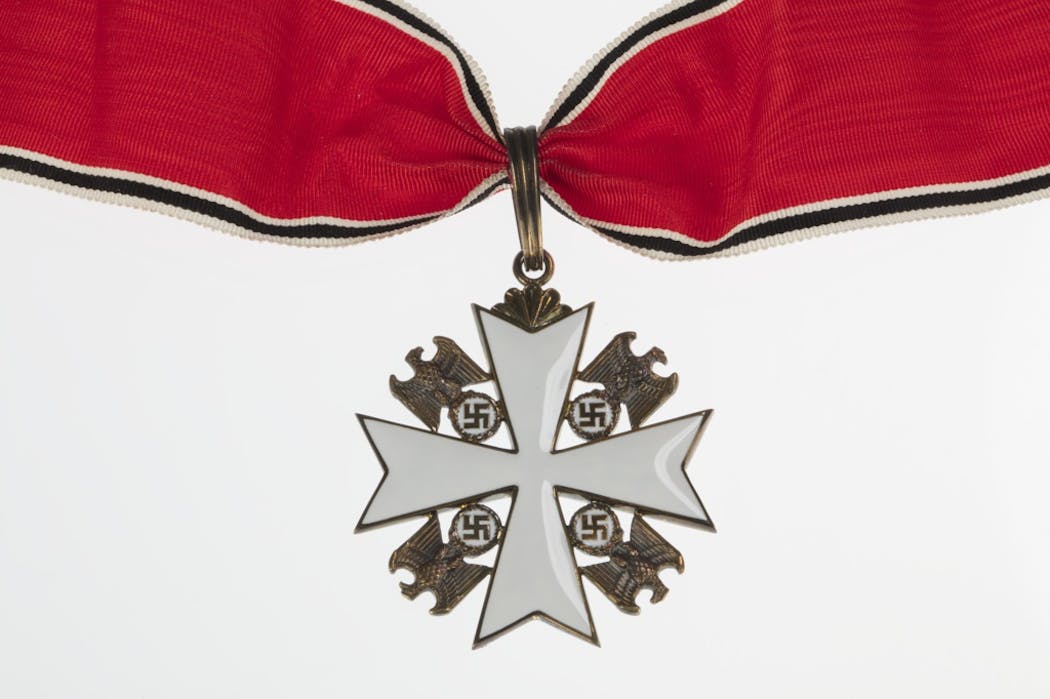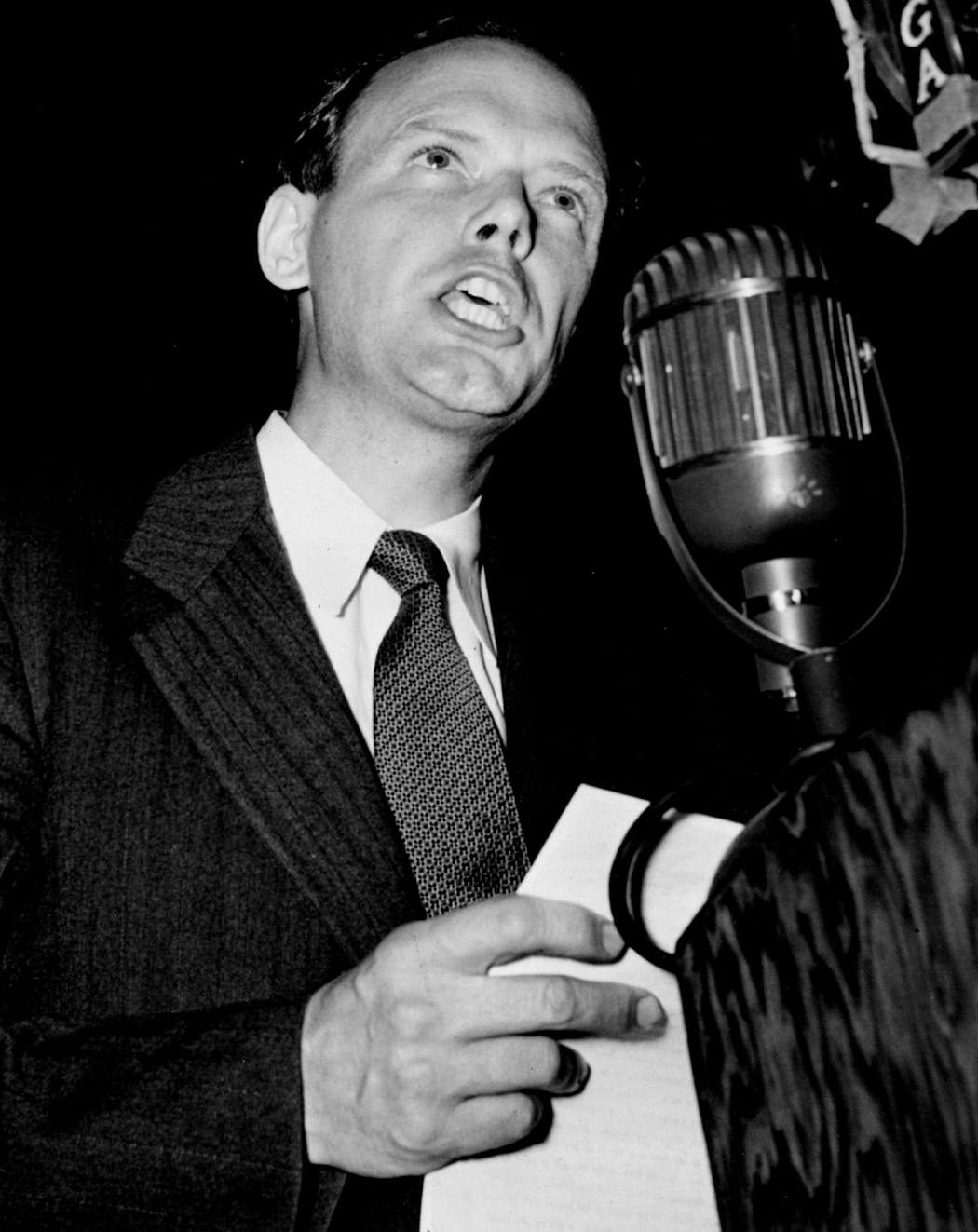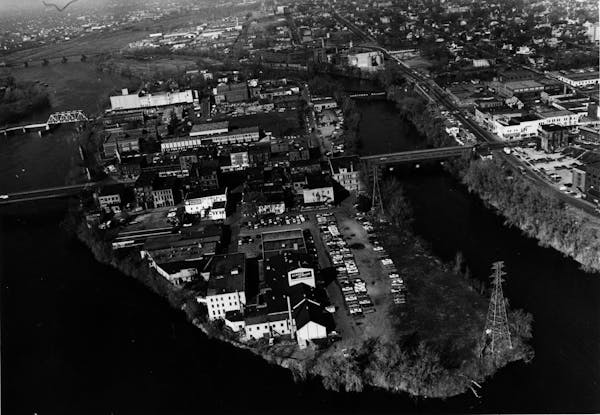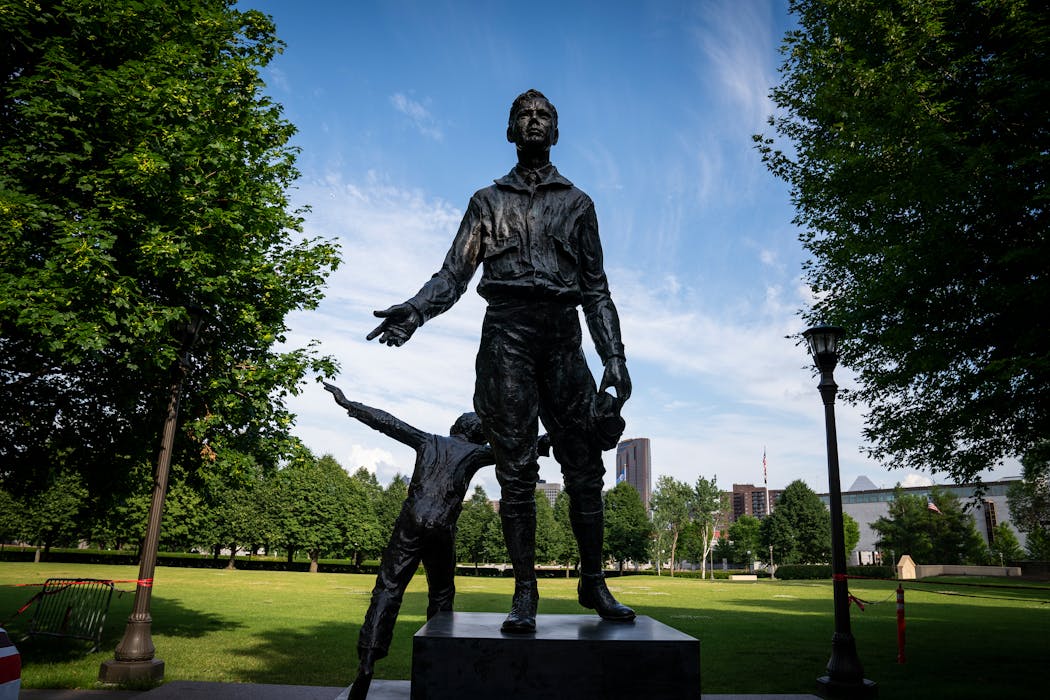Was Charles Lindbergh a Nazi sympathizer?
Listen and subscribe to our podcast: Via Apple Podcasts | Spotify | Stitcher
Any list of world-famous Minnesotans would include Charles Augustus Lindbergh, the Little Falls farm boy who grew up to become one of the greatest aviators of all time.
His daring solo flight from New York to Paris in May 1927 launched him on a lifetime of high achievement that included pioneering advances in rocketry and medical science, a Pulitzer Prize-winning memoir and global advocacy for the environment and conservation. When he died in August 1974, President Gerald Ford said Lindbergh represented "all that was best in our country — honesty, courage and the will to greatness."
But reader Mark Bullis had a more pointed question about Lindbergh for Curious Minnesota, the Star Tribune's reader-powered reporting project: Was he a Nazi?
Bullis, a retired Army officer and registered nurse who lives near Prescott, Wis., said he's read about the early years of World War II when Lindbergh was the leading spokesman for the America First Committee, a popular movement opposing American intervention in the war before Pearl Harbor.
During that period Lindbergh accepted a medal from the Nazi government and, in a nationally broadcast speech from Des Moines, blamed Jews along with the British and the Roosevelt administration for trying to maneuver the United States into the European war.
President Franklin Roosevelt, Lindbergh's biggest political foe, told his Treasury secretary: "If I should die tomorrow, I want you to know this: I am absolutely convinced Lindbergh is a Nazi."
Given the statue of Lindbergh on the State Capitol grounds, and his name stamped on Terminal 1 at Minneapolis-St. Paul International Airport, Bullis said he wondered "why Lindbergh in Minnesota is being left out of the fray" that's enveloping other parts of the country engaged in historical reckoning.
Minnesota upbringing
Lindbergh spent his childhood years in the central Minnesota town of Little Falls, with the exception of his birth in Detroit and periods in Washington, D.C., when his father represented Minnesota in Congress. He spent less time in the area after graduating from high school in 1918, and finally moved from Minnesota for good when he went to flying school in Lincoln, Neb., in 1922.
He returned to the state periodically, to help his father campaign for office and in later years to assist the Minnesota Historical Society in the restoration of his old home in Little Falls. He spoke at the dedication of the interpretive center there in 1973, a year before he died.
Few people have rocketed to worldwide fame as rapidly as Lindbergh did in 1927, when the unknown air mail pilot completed the first nonstop flight from New York to Paris. The feat electrified the world, not least because he was modest, handsome and had done it alone.
It's true that Lindbergh was drawn to aspects of the Nazi regime. While touring German aviation plants in the 1930s collecting intelligence on the Luftwaffe for the U.S. State Department, Lindbergh admired what he considered the vitality and order of the German people. In his mind they provided a favorable contrast to the excesses of American society — especially the press — that he blamed for the kidnapping and murder of his toddler son in 1932.
Unlike FDR, Lindbergh considered Soviet communism a greater threat to the West than Nazi fascism, and he believed the Germans better equipped to "dam the Asiatic hordes" and defeat the Russians than either England or France. Let them fight it out without us, he urged Americans.
In October 1938, during a dinner at the American embassy in Berlin, Nazi leader Hermann Goering surprised Lindbergh with a civilian medal for his aviation exploits. When Lindbergh later showed it to his wife, Anne, she remarked: "The albatross."
But the Kristallnacht pogrom against the Jews a month later troubled him enough to cancel plans to take up temporary residence in Berlin. He thought Hitler a fanatic, and publicly deplored the persecution of Jews by the Nazi government.
Lindbergh never did return that medal; "I'm a stubborn Swede," he once said. But he wasn't a Nazi, said Brian Horrigan, a former Minnesota Historical Society curator and historian who developed the exhibit at Lindbergh's Little Falls home.
"It's just not fair to lump him in with people like the brownshirts in England," Horrigan said, "people who were explicitly pro-Nazi Germany."
'Greatest danger to this country'
Still, Bullis' question raises the thornier issue about whether Lindbergh was an anti-Semite. It was a charge he refuted his entire life — "Good God, no," he said when asked the question pointblank by a New York Times reporter shortly before he died. But his words in the critical years before the United States entered World War II suggest otherwise.
"It is not difficult to understand why Jewish people desire the overthrow of Nazi Germany," Lindbergh said in his Des Moines speech in September 1941. "The persecution they suffered in Germany would be sufficient to make bitter enemies of any race. No person with a sense of the dignity of mankind can condone the persecution of the Jewish race in Germany."
He continued: "But no person of honesty and vision can look on their pro-war policy here today without seeing the dangers involved in such a policy both for us and for them. ... Their greatest danger to this country lies in their large ownership and influence in our motion pictures, our press, our radio and our government."
"Right there he's trafficking in age-old anti-Semitic conspiracy theories," said Steve Hunegs, executive director of the Jewish Community Relations Council of Minnesota and the Dakotas (JCRC).
People at the time understood what Lindbergh was saying, Hunegs said, pointing to a St. Paul Pioneer Press editorial two days after the speech that excoriated Lindbergh and called him an "Imitator of Hitler." The Minneapolis Tribune wrote that Lindbergh "has managed to bring himself to fanning of the flames of intolerance, of taking a discreditable advantage of a fact — anti-Semitism — the existence of which all decent people are ashamed."
In a letter to the America First Committee sent shortly after the speech, Arthur Brin, of the Jewish Anti-Defamation Council of Minnesota, pointed out that only 15 of the nation's 1,700 newspaper publishers were Jews, and only four of them headed prominent metro dailies.
"Mr. Lindbergh's statements reveal either ... gross ignorance ... or else his following of the Hitler line, that 'the very enormity of a lie contributes to its success,' " Brin wrote.
Lindbergh "was certainly anti-Semitic adjacent, to say these terrible things at a time of huge national insecurity," Hunegs said. "He's just stirring the pot."
A broader legacy
Horrigan agrees that Lindbergh expressed anti-Semitic views and even wrote some things — notably a 1939 article for Reader's Digest — that traded in white supremacist rhetoric. Lindbergh warned that the West was "on the verge of a disastrous war, a war within our own family of nations, a war which will reduce the strength and destroy the treasures of the white race."
While Lindbergh's statements on Jews and race are rightly part of his record, Horrigan said, they shouldn't be used to obscure the broader context of his life's work. He blames in part Philip Roth's 2004 novel "The Plot Against America" — which became an HBO miniseries in 2020 — in which Lindbergh is elected president and signs a treaty with Hitler promising not to block German expansion.
"It's caricaturing and ahistorical," he said. "You lose the entire man if that's all you emphasize. ... It's the only thing people know and that they want to talk about."
In Lindbergh's later years, he made a quiet effort to rehabilitate his reputation. It started with his acclaimed book "The Spirit of St. Louis," which reminded people of the heroic aviator of old. He lent his enormous influence to work in conservation, including support for efforts to establish Voyageurs National Park in northern Minnesota.
"It allowed people to forgive and forget their anger with him that came out of 1941," Horrigan said. But to this day, he added, the name Lindbergh remains taboo in many Jewish households.
A. Scott Berg, whose definitive biography of Lindbergh won the Pulitzer Prize in 1999 — and who is Jewish — has said that Lindbergh "certainly bought into traditional anti-Semitic stereotyping." But he didn't think Lindbergh hated Jews.
If there was one thing, Berg said in a 2017 lecture, that all Lindbergh's children agreed on — including those from his secret affairs with German women that came to light in 2003 — it was "that Charles Lindbergh has got to be one of the strangest men who ever lived."
If you'd like to submit a Curious Minnesota question, fill out the form below:
Read more Curious Minnesota stories:
How many WPA projects were built in Minnesota as part of FDR's New Deal?
Was Minnesota once home to U.S. government-sponsored hemp farms?
From bankrupt racetrack to aviation hub — what remains from MSP Airport's early days?
Did German prisoners of war really work on Minnesota farms during World War II?
Was Minnesota home to nuclear missiles during the Cold War?
Why hasn't Minnesota ever produced a U.S. president?
